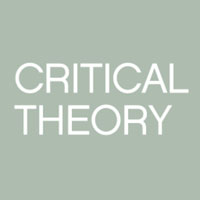How does Aristotle differ from Plato in his theory of imitation and what is the relation between imitation and morality?
Aristotle differs with Plato on the pragmatic value of poetry. Plato as a dualist divides reality into two world- world of ideas and world of senses. World of ideas has eternal and immutable patterns, spiritual and abstract in their nature and all things of the sensory world is fashioned after and imitation of it.

The poet has only the realm of appearance in front of him, so he imitates it and makes copies of copies. Poetry in fact impairs reasoning by appealing to the inferior part of soul, the irrational, emotional, cowardly part. Plato objects to poetry on the ground of its irrationality and inadequacy to represent the truth of the idea. Aristotle does not see imitation as impairment of rational faculty, so he does not find any fault in poetry, which imitate men in action. Poets for Aristotle take the form from nature and reshapes it in a different matter or medium. Art is an improvement of nature and poets give completion to nature where it is endeavoring to complete. Thus the poet is an imitator as well as a creator. Unlike Plato whose main focus is establishment of perfect society, Aristotle wants to improve the existing one. Plato finds poetry feeding passion so poetry is not ethical as it promotes undesirable passions. Rather than shying away from poetry as Plato did, Aristotle embraces poetry which evokes passion. Among different genres of literature he has emphasized tragedy as its intricately constructed plot creates Cathartic effect on the audience.
Aristotle supposes that the extravagant representation of powerful emotion is beneficial to the individuals providing opportunity for the cathartic release of unhealthy feelings rather than discouraging their development. Having seen the outcome of the inherent flaw of tragic hero, audiences, are less likely to commit similar acts of pride. Aristotle is inclined towards concrete, practical, sensory appreciation of reality. Plato is inclined towards abstract, speculative, intellectual appreciation of reality.
Morality is system of moral principle concerning right and wrong, good and bad behavior. The relation between morality and imitation has been the bone of contention since the classical theorists to the critics of modern age. Plato is a stern moralist who believes imitation perpetuates immorality. Morality rests upon just soul and just soul is the one in which rational part governs the irrational part. Since imitation only leads people away from truth, imitation is dangerous for the society. For Plato ethical values that are governed by the idea of good are immutable and eternal and such ideas are in metaphysical world and could not be found in imitation. So Plato alleges poetry of counterfeiting and feigning through imitation. Aristotle however believes that imitation promotes morality. Tragedy is highest form of imitation; it is imitation of action that is serious, complete and of certain magnitude. Tragedy reminds mankind of their humanity that they are vulnerable but this realization do not outstrip men of their ethical principles and laws. It rather reminds that actions should be guided by values of society and past models of ethical actions. Imitation for Aristotle has very positive relation with morality.
Boethius is more influenced by moral philosophy of Plato rather than theoretical work of Aristotle. He asserts morality lies in disregarding trials and tribulations of life and temporal misfortune of life and doing as suggested by reasoning. For Horace imitation is not immoral as it serves as subject matter of poetry. Sir Philip Sydney views imitation strengthening morality. Other disciplines like history records vagaries of fortune, which allows the innocent to suffer and vicious to prosper. But poetry which imitates nature shows evil punished and good rewarded. So imitation not only imparts pleasure by giving perfection where the nature lacks it also elevates morality. So for Sidney imitation does not corrupt, but it uplifts the moral sense in humans. Critics differ radically in their concept of relation between morality and imitation, their theories varies from uplifting views on morality to remote idealism.
